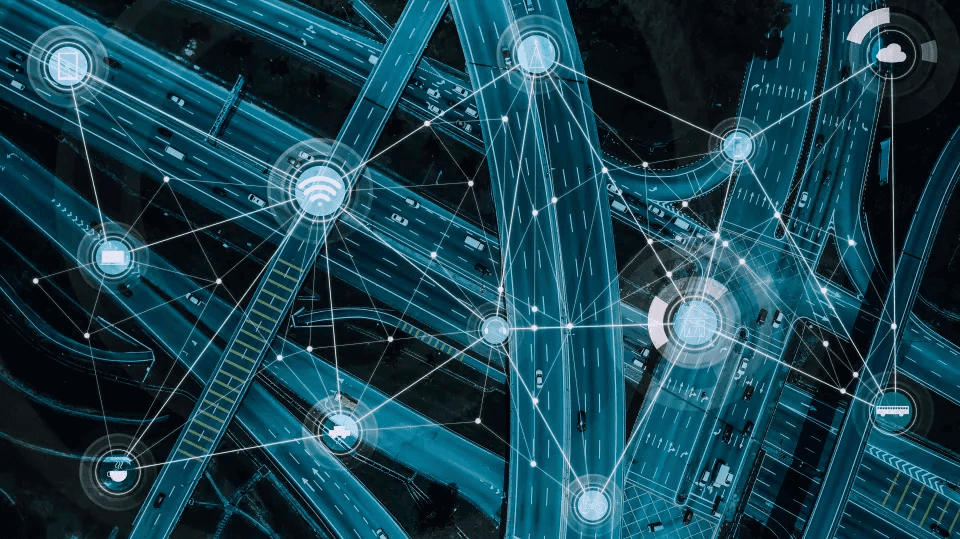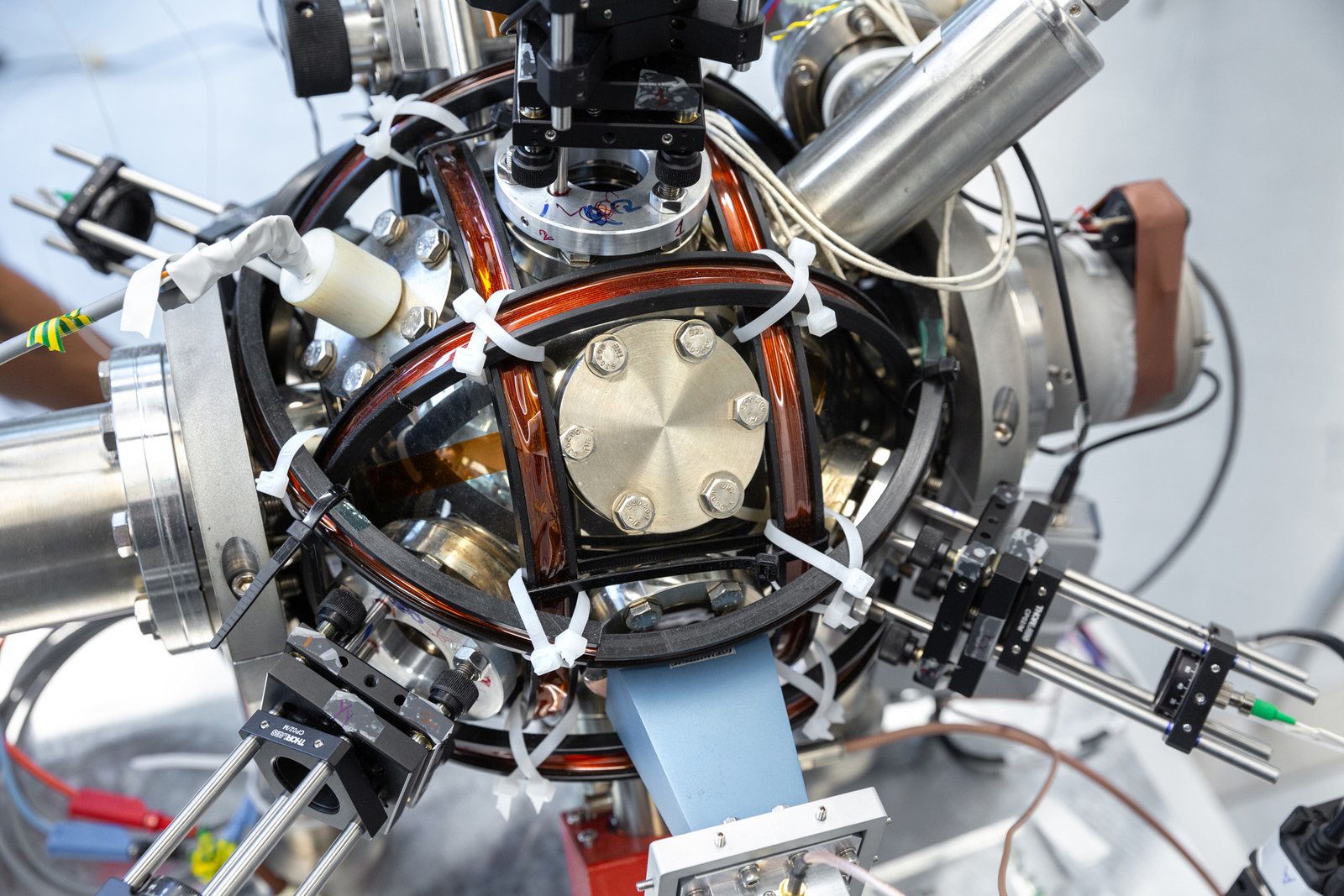
Navigating the Future
Quantum Technology Leads the Way
From the simple act of finding our way home to the complex maneuvers of aircraft and spacecraft, navigation is fundamental to our modern world. However, current dominant technologies like GPS, while incredibly useful, have limitations, including susceptibility to jamming and inaccuracies in certain environments. Quantum technology is emerging as a powerful solution, promising navigation capabilities with unprecedented accuracy, reliability, and security, paving the way for a future where we can navigate with absolute certainty.
The Quantum Advantage
Enhancing Navigation Capabilities

Quantum mechanics offers several key advantages that can revolutionize navigation:
- Ultra-Precise Quantum Sensors: Quantum accelerometers, gyroscopes, and magnetometers leverage the fundamental properties of atoms and light to measure motion and orientation with exceptional accuracy and stability over extended periods, all without relying on external signals.
Quantum accelerometers can achieve sensitivities orders of magnitude greater than their classical counterparts, potentially detecting even the slightest changes in motion with incredible precision.
- Enhanced Timekeeping with Atomic Clocks: The extreme precision of quantum atomic clocks, based on the stable energy transitions of atoms, can significantly improve the accuracy and resilience of satellite-based navigation systems. They also enable highly accurate standalone inertial navigation systems that can operate independently for much longer durations.
Even a tiny error in timekeeping can lead to significant positional errors in GPS. Quantum atomic clocks offer such accuracy that these errors can be drastically reduced.
- Quantum Gravimetry for Absolute Positioning: Quantum gravimeters, which measure minute variations in the Earth's gravitational field with extreme sensitivity, hold the potential for absolute positioning. This means determining your location without needing any external reference points, a capability that could be transformative in GPS-denied environments.
Key Applications of Quantum Technology in Navigation
The unique capabilities of quantum navigation are poised to impact a wide range of applications:
- Autonomous Vehicles (Land, Air, and Sea): For self-driving cars, drones, and autonomous underwater vehicles to operate safely and reliably, especially in challenging environments where GPS signals are unreliable or unavailable (like tunnels, underwater, or dense urban areas), highly accurate quantum inertial navigation systems will be crucial.
- Aerospace and Defense: In aerospace and defense, where GPS jamming or spoofing is a significant concern, quantum inertial navigation systems (INS) offer a secure and highly accurate alternative for aircraft, spacecraft, and military vehicles, providing precise positioning and orientation for extended missions without the need for external updates.
- Submarines and Underwater Navigation: Navigating underwater is a significant challenge due to the absence of GPS signals. Quantum gravimeters and magnetometers could revolutionize submarine navigation by providing precise absolute positioning based on the Earth's gravitational and magnetic fields, allowing for truly independent underwater travel.
- Space Exploration and Satellite Navigation: For long-duration space missions and precise satellite operations, the stability and accuracy of quantum atomic clocks are invaluable. They can enhance the precision of satellite navigation systems and enable more accurate tracking and control of spacecraft.
- Surveying, Mapping, and Geophysics: Quantum gravimeters can be used to create highly detailed maps of the Earth's gravitational field, providing valuable data for surveying, resource exploration (like oil and minerals), and understanding geological structures with greater accuracy than ever before.
Challenges and the Future of Quantum Navigation
While the potential of quantum navigation is immense, several challenges need to be overcome before these technologies become widely adopted. Current quantum sensors and atomic clocks often require bulky and sensitive equipment, making them less practical for many real-world applications. Reducing the size, weight, and power consumption (SWaP) of these devices is a major focus of ongoing research. Additionally, making them more robust and less susceptible to environmental factors like temperature changes and vibrations is crucial. Despite these hurdles, significant progress is being made, and the future of navigation is likely to be heavily influenced by quantum advancements.
Quantum Navigation in India
Charting a Course for Self-Reliance
India has a strong strategic interest in developing advanced and self-reliant navigation technologies for both civilian and defense applications. Recognizing the transformative potential of quantum sensors and atomic clocks, Indian research institutions and defense organizations are actively exploring their use in navigation systems. Efforts are underway to develop indigenous quantum navigation capabilities, which would enhance national security and reduce reliance on foreign technologies in this critical domain. [Placeholder for Link to India's Quantum Navigation Initiatives]
Explore the Quantum Realm Further
The field of quantum navigation is rapidly advancing, promising a future where positioning and orientation are more accurate and reliable than ever before. To delve deeper into this exciting area, we encourage you to explore the following resources:
- Review of Quantum navigation - [ResearchGate] - This provides a technical review of quantum navigation systems and their core technologies.
- Current Trends and Advances in Quantum Navigation for Maritime Applications - A Comprehensive Review - This paper specifically reviews quantum navigation for maritime applications.
- Quantum inertial navigation - University of Birmingham - The University of Birmingham is a leading institution in quantum inertial navigation research.
- UK Quantum Technology Hub: The UK Hub for Quantum Enabled Position, Navigation and Timing (University of Glasgow) - This hub focuses specifically on advancing quantum technologies for positioning, navigation, and timing.
- Boeing's Quantum-based Navigation System Takes Flight in Historic Test - This article reports on a significant flight test using a quantum inertial measurement unit.
- UK Breakthrough in Quantum Defence Tech: Massive British breakthrough in Quantum defence tech - This article discusses the development of a quantum atomic clock for military applications.
- New Quantum Hub Launch: New quantum hub launched to tackle GPS signal disruption - This article announces a new hub focused on improving the reliability of GPS signals using quantum technology.